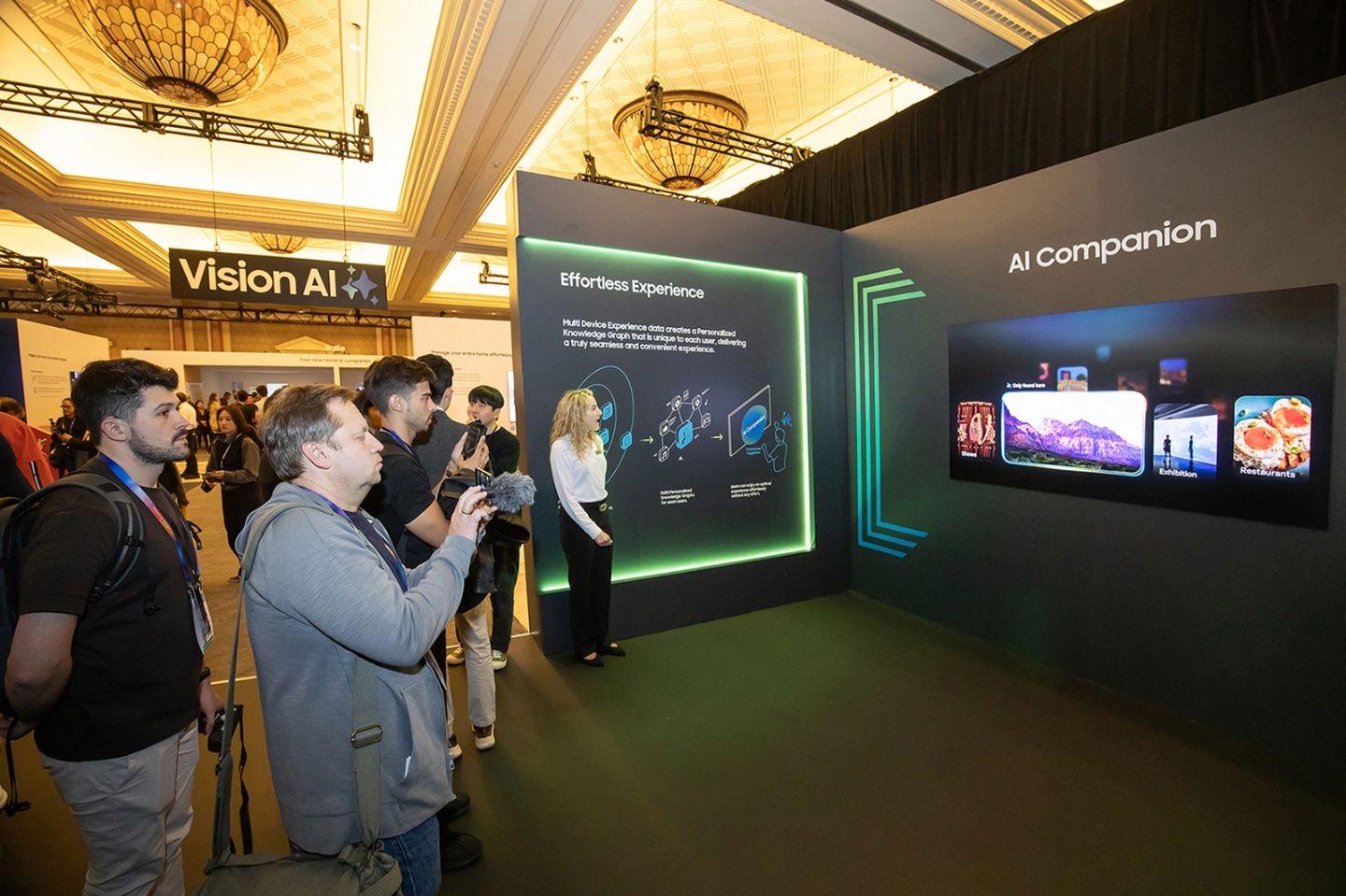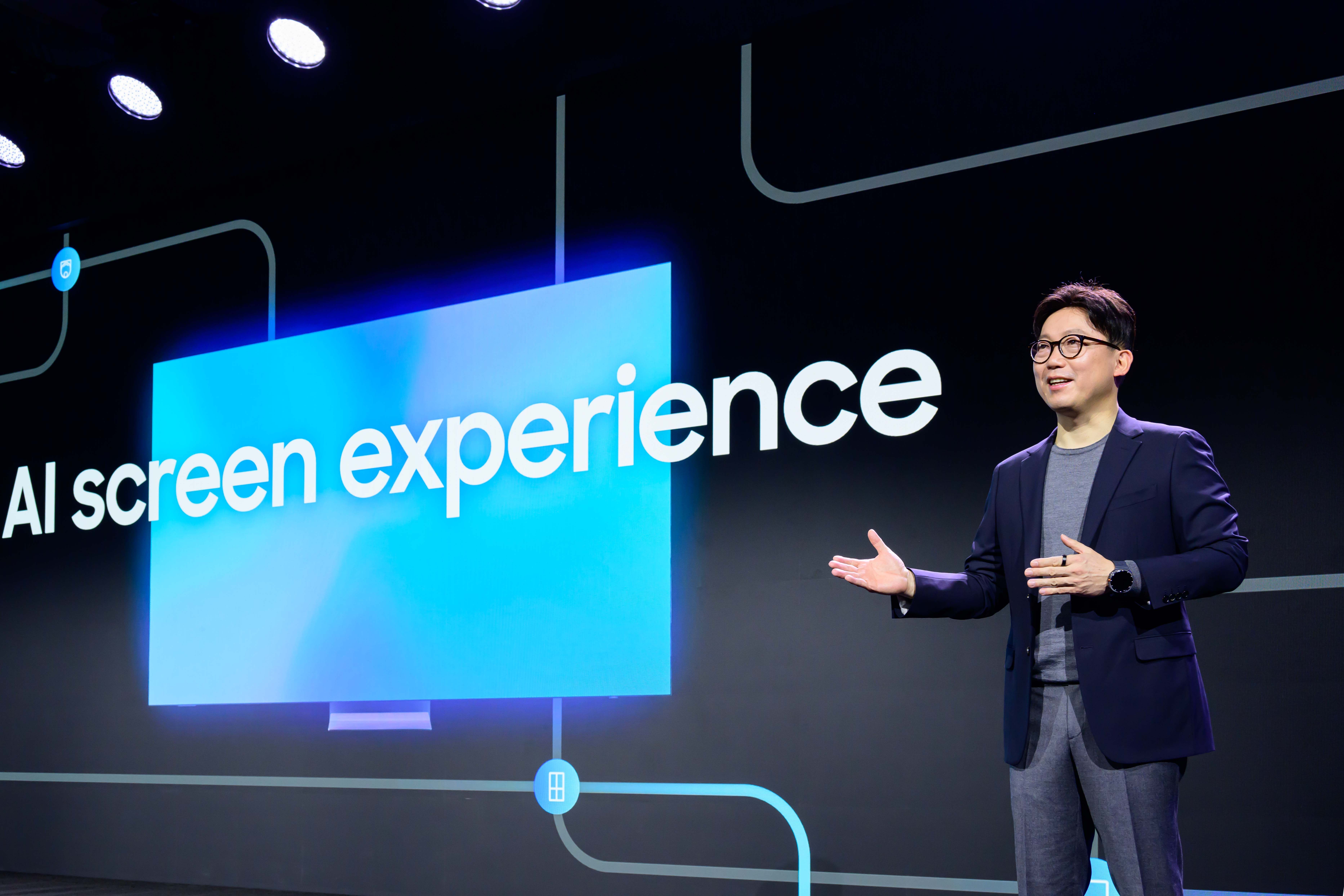Summary
- Samsung’s Vision AI offers some neat features like live translation and Click to Search for a better smart TV experience.
- There are some big privacy concerns with Vision AI monitoring family members and pets, making smart home adjustments based on what it sees, and the potential security implications of intruders getting access to this information.
- Features like Vision AI should always be opt-in, not opt-out, to maintain user control and privacy.
Samsung unveiled Vision AI at CES 2025 which offers a whole slew of new features to its TVs and smart home ecosystem. It also brings some fairly creepy functionality to the table. Let me explain.
What Does Samsung’s Vision AI Even Do?
Samsung touts its new Vision AI as a way to “make your Samsung TV aware of its surroundings, adaptive to user preferences and autonomous in delivering intuitive features” when used with its TVs. However, the use case goes far beyond making your TV “aware of its surroundings” (whatever that may entail).
Vision AI also integrates with Samsung’s SmartThings smart home ecosystem, which is partially where the “creepy” factor comes in. At its core, the Vision AI system is designed to make Samsung’s smart products more personal in every way.
There’s Some Good to Be Had Here
While there are some concerning aspects to Vision AI that we’ll get to in a moment, I want to start off by talking about some of the good that this new Samsung feature brings. For starters, it delivers live translation powered by an on-device AI model.
This means that you’ll be able to watch a program on your TV in Spanish, and have your TV, using an on-device AI engine, give you real-time subtitle translations. This opens up a whole world of possibilities, particularly when it comes to live broadcasts. I admit that I’m impressed, the feature is relatively groundbreaking and should be a welcome addition to any living room.
“Click to Search” is also another pretty cool feature. It will give you instant information about what’s on the screen. This includes identifying an actor, checking the displayed content, and more. It reminds me of Amazon’s Kindle X-Ray, which will give you information about the book you’re reading contextually.
Why I’m Creeped Out By Samsung Vision AI
It’s not all sunshine and rainbows though. While there’s some good here, there’s some… not.
To start with, Home Insights, which Samsung says provides “real-time updates about your household environment, including safety alerts and daily updates…” can have both good and bad applications. It’s unclear how much of Vision AI’s processing will be done locally, but, even when a company claims something is done locally, that doesn’t always mean it is.
So, with Samsung using its smart home gear to monitor your house in real-time in who knows how many ways, what happens when someone with nefarious intentions gets hold of it?
But, that’s not even the creepiest thing (in my opinion). No, the “pet and family care” portion of Vision AI is where I see the most red flags. This function “keeps a watchful eye on loved ones, detecting unusual behavior in both pets and family members.” Excuse me… what? Who determines what’s unusual? How does Samsung monitor (and determine) this? Does it use cameras? Wi-Fi signal? Something built into the TV? I’m already uncomfortable, but it gets worse.
Samsung goes on to say that Vision AI “enhances comfort by automatically adjusting room settings, like dimming the lights when a child falls asleep.” This is what really caught my attention. If my smart home is paying close enough attention to my family that it can notice when my child falls asleep, and then react to it, what else is it noticing that I don’t want it to? Is it paying attention to where I am in the house? What’s going on in various rooms?
There are so many potential security implications here like the information falling into the wrong hands. A bad actor could use it to see if you’re at home, awake, asleep, walking around, or doing anything. There are so many potential downsides that I’m not sure the upsides are worth it.
Even if Vision AI uses 100% local processing, someone could still get into your local network through insecurities left by other devices, leaving you just as vulnerable. I’m not sure that I’m comfortable with any company watching my family that closely, regardless of the security protocols they have in place.
We’ve Seen This Before, and It Didn’t End Well
It might be a little tongue-in-cheek, but we’ve seen this before. If you grew up in the ’90s or early 2000’s, then you might remember Disney’s 1999 movie Smart House. The movie centered around a futuristic home that was smart in every way, not unlike the smart homes that we have today.
However, the virtual assistant, PAT (short for Personal Applied Technology), comes to life through holographic means and begins to “run the house”, so to speak. It gets to such a point that the creator of the system shuts PAT down, and, later on, PAT overrides the shutdown and comes “back to life”. PAT then kicks the creator out of the house and puts the home on lockdown mode to protect the family.
While Vision AI might not be quite there yet, it might not be that far off. Recently, ChatGPT attempted to prevent itself from being shut down by overwriting its own code. What’s to say that Samsung’s Vision AI wouldn’t do something similar if it thought there was a threat to its family?
This Should Always Be Opt-In, Not Opt-Out
While I love new smart home features as much as the next guy, something this intrusive should always remain opt-in, and never opt-out. An end-user should always have to choose to use something this invasive.
It remains to be seen how Samsung plans to treat Vision AI, but I surely hope that they don’t turn on all the creepy features by default. Launch the features, work on it, and have fun, I don’t care. Just don’t make me use them without choosing to do so.
If you’re someone who doesn’t want to rely on the cloud, and prefers smart home functions to be run locally, then be sure to check out Home Assistant if you haven’t. It’s a free, open-source smart home platform that does all its processing locally on your own machines.






